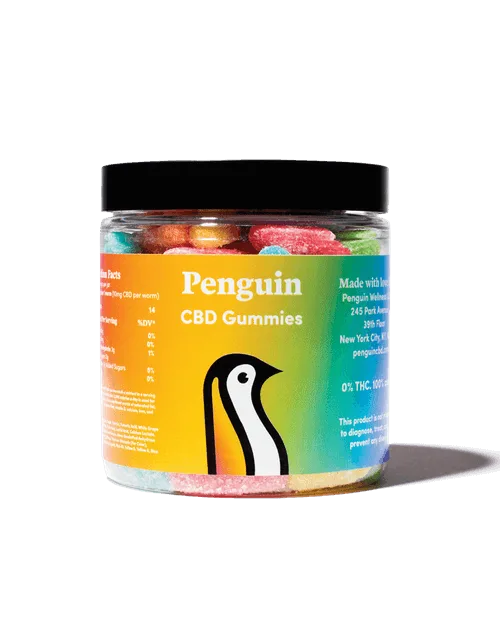Microdosing To Heal The Body Mind & Soul
 By Penguin CBD
By Penguin CBDWe have arrived at the intersection of ancient wisdom and modern science. Welcome to the dawn of the microdose, a practice redefining the boundaries of mental and emotional health. The microdose has gained substantial attention within the realms of both psychedelics and CBD (cannabidiol).
Microdosing involves the practice of consuming minute, sub-perceptual amounts of a substance to achieve subtle, therapeutic effects without causing psychedelic experiences or unwanted side effects associated with higher doses. This rising trend has become popular in the use of psychedelics for trauma and emotional healing and the utilization of CBD for wellness and stress management.
Let’s take a trip into the world of microdosing, examining its roots and how it ignited global intrigue and fascination!
Microdosing with Psychedelics for Trauma Healing & Depression
The idea of using psychedelics for therapeutic purposes dates back centuries for some cultures. Researchers such as Stanislav Grof and Timothy Leary explored the potential of substances like LSD and psilocybin (magic mushrooms) for psychological transformation and healing during the 1960s and 1970s. However, these substances were subsequently classified as Schedule I drugs in many countries, limiting their legal use and research.
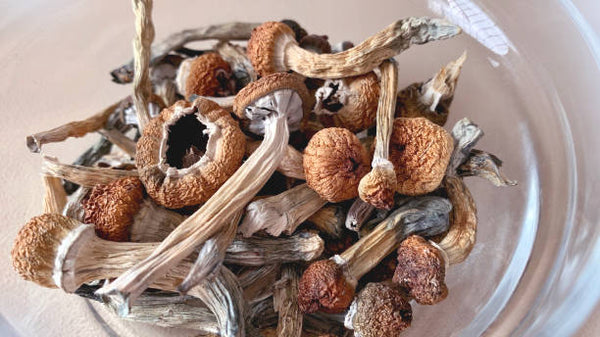
In recent years, there has been a resurgence of interest in the healing potential of psychedelics. With the departure from Big Pharma and holistic alternatives on the rise, one of the most well-known applications of microdosing in this context is psilocybin.
Psilocybin found in many species of mushrooms has been shown to disrupt the normal communication networks in the brain, leading to a temporary reorganization of brain connectivity. This effect is thought to contribute to the altered states of consciousness and perception commonly experienced during a psilocybin trip. This disruption allows for new connections to form, potentially increasing mental flexibility.
By activating serotonin receptors, particularly the 5-HT2A receptor, psilocybin can enhance mood, emotional empathy, and sensory perception, making colors seem brighter, sounds more distinct, and emotional experiences more profound. This is why they call it a trip! Many have described it as entering or being in a new dimension, the awareness of connection and a kinship with the earth, nature, music, and the blooming of the mind.
Another function of psilocybin is it decreases activity in the Default Mode Network (DMN): The DMN is a network in the brain associated with self-referential thoughts and the ego. Psilocybin has been shown to decrease activity in the DMN, which is thought to correlate with experiences of ego dissolution and increased feelings of connectedness with others and the environment. This effect is also being studied for its potential to alleviate symptoms of mental health conditions such as depression and anxiety.
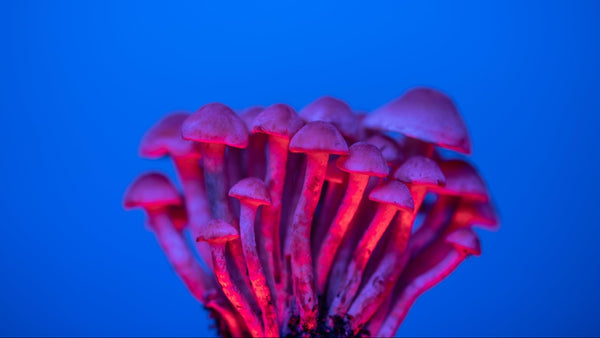
Psilocybin may have the ability to promote neuroplasticity—the brain's ability to form new neural connections. This could explain some of the long-term benefits reported by users, such as improved mood and cognitive flexibility, even after the immediate effects of the substance have worn off. These effects are thought to arise from the combination of altered neural connectivity, decreased DMN activity, and the profound personal and spiritual insights or revelations that individuals often report during psilocybin experiences.
Microdosing in Psychedelics for Trauma
Microdosing psychedelics, such as psilocybin (the active compound in magic mushrooms) or LSD, have gained attention as a plant medicine tool for trauma healing. The theory is that by taking very low doses regularly, individuals may experience subtle shifts in consciousness, improved emotional regulation, and reduced symptoms of trauma-related disorders like PTSD (Post-Traumatic Stress Disorder), anxiety, and panic attacks.
Reports from case studies suggest taking psychedelics for trauma is often a positive experience, both during and after consistent use. Many microdosers have claimed reduced anxiety, improved mood, enhanced emotional resilience, and joy! This sounds pretty amazing, right? More and more people from many different demographics have opened their minds to exploring psychedelics.
It’s important to note that some personal research on proper dosages, find out what a true microdose is for your body, and both positive and perhaps any negative interactions that can occur. Keeping an open mind while learning about microdosing and researching is a great way to navigate this taboo-no-more trend, and see if it’s right for you.
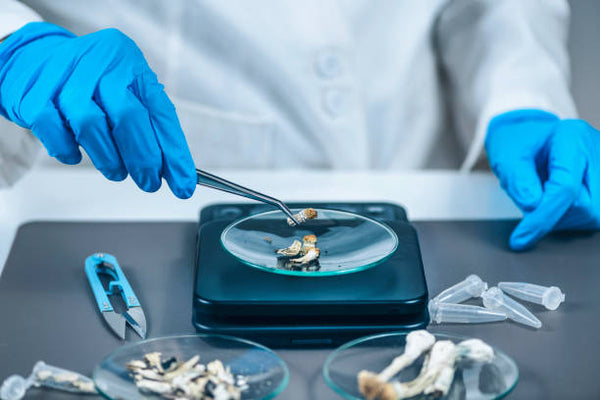
Ongoing clinical trials and research initiatives exploring the therapeutic potential of psychedelics, including microdosing psilocybin for trauma have put the spotlight on many forms of plant-based healing modalities, including our favorite— CBD! Organizations like the Multidisciplinary Association for Psychedelic Studies (MAPS) and the Beckley Foundation have been at the forefront of this research. The legal status of psychedelics varies widely from one jurisdiction to another. While some regions have decriminalized or legalized certain psychedelics for medical or recreational use, others maintain strict prohibitions.
Microdosing CBD for Wellness
CBD, a non-psychoactive compound derived from the cannabis plant, has experienced explosive popularity in recent years. Its diverse range of health benefits and newly regulated availability has made it a go-to choice for wellness enthusiasts seeking alternatives to traditional pharmaceuticals.
How It Started
Microdosing with CBD involves consuming minimal doses of the compound, typically below the threshold where psychoactive effects are felt. While CBD does not produce a "high" like THC, users are called to microdose for its potential to deliver subtle but consistent therapeutic effects. It can be beneficial in cases where someone is experiencing severe pain and cannot or chooses not to take NSAIDs or other prescribed pain medicines.
One of the primary motivations for microdosing CBD is its effectiveness in managing stress and anxiety. CBD is a holistic option that has become a popular choice over the use of Benzodiazepines, which enhance the activity of a neurotransmitter called gamma-aminobutyric acid (GABA) in the brain, leading to sedation, relaxation, and reduced anxiety. CBD interacts with the endocannabinoid system, regulating various physiological processes, including mood and stress.
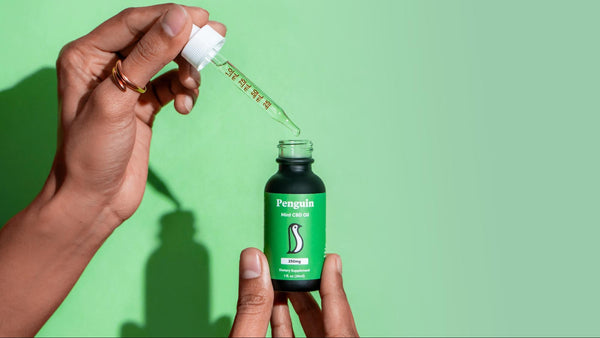
CBD doesn't bind directly to GABA receptors and doesn't produce the sedative effects seen with benzodiazepines. Benzodiazepines can lead to side effects like drowsiness, impaired coordination, memory problems, and risk of dependence or withdrawal symptoms if used for an extended period. CBD is generally considered safe and well-tolerated, with fewer side effects. However, some people may experience mild side effects such as dry mouth, changes in appetite, or diarrhea.
Benzodiazepines have a higher potential for dependence, and abrupt discontinuation can lead to severe withdrawal symptoms. CBD does not produce dependence or withdrawal symptoms. As a healthier alternative to benzodiazepines, stress-related disorders are prevalent in modern society, and people are increasingly seeking natural remedies to cope.
Microdosing CBD
Microdosing CBD may offer a range of benefits, including reduced anxiety, improved sleep quality, enhanced mood, and increased focus. Some users report a sense of calm and emotional balance without the sedating or impairing effects associated with higher CBD doses or legal THC products.
Personalized Dosing
Microdosing with CBD allows for a personalized approach to your health. You have the freedom to explore and design a wellness regimen that works best for you! Users can experiment with different doses and schedules to find their perfect dose. This flexibility has contributed to the popularity of microdosing CBD.
CBD products come in many forms including tinctures, capsules, edibles, and even transdermal patches. Tinctures, in particular, are favored for their ease of dosing and rapid onset of effects. Take a look at our Penguin CBD Oil Tinctures and add a few to your cart. It’s a great product to start your CBD routine off right!

Comparing Microdosing in Psychedelics and CBD
Microdosing psychedelics for trauma healing and microdosing CBD for stress management serve different purposes. The former is often explored as a therapeutic tool for addressing deep-seated emotional issues, while the latter focuses on day-to-day stress reduction and well-being. Supporting a microdose psilocybin routine with a CBD regimen is also a remarkable supplementation that is worth exploring! These two botanicals can be used in tandem with each other offering a bounty of mental, emotional, and physical support tailored to your dosage.
The legal landscape for psychedelics and CBD differs significantly. While CBD is legal in many regions, psychedelics are often subject to strict regulations or are illegal. This divergence has played a role in accessibility and research opportunities. The research on psilocybin is at an all time high right now with more studies rapidly being conducted to make this medicine more accessible. States are legalizing the cultivation and sale of psilocybin more and more. It is still regulated, but the landscape is constantly evolving in the United States.
Microdosing with psychedelics is still in its beginning phases in the medical world with more limited clinical research compared to CBD. CBD has undergone more extensive scientific scrutiny and historically it has had a longer track record with studies and results. At Penguin, our take on CBD is that it’s a powerful ally that boosts many different areas of your health. You can’t go wrong with our premiere quality products from Penguin, third-party tested from quality organic hemp grown in Oregon.

Individual responses to microdosing can vary widely. Factors like genetics, metabolism, and psychological state can influence how a person experiences the effects of microdosed substances, whether they are psychedelics or CBD. In contrast, CBD's safety profile and widespread availability make it a clear option for self-administration.
The microdose trend in both psychedelics for trauma healing and CBD for wellness and stress management reflects a growing interest in the subtle and therapeutic effects of these substances. While the fields of microdosing psychedelics and CBD have distinct goals, legal considerations, and research pathways, they both represent innovative approaches to improving mental health and well-being.
As scientific understanding and legal frameworks continue to evolve, the future of microdosing in these domains holds promise for those seeking alternative methods for healing and enhancing their lives. As with any new supplementation, it’s necessary to approach microdosing with caution, responsibility, and a clear understanding of the potential risks and benefits.
At Penguin, we are big fans of digging into the latest trends in plant-based well-being. Plant wellness has made leaps and bounds into the modern landscape of health. We are happy to witness how CBD and other forms of flora and fauna continue to fine-tune our relationship with ourselves, the earth, and the world we live in. Head to the Penguin Shop for all your CBD needs!
